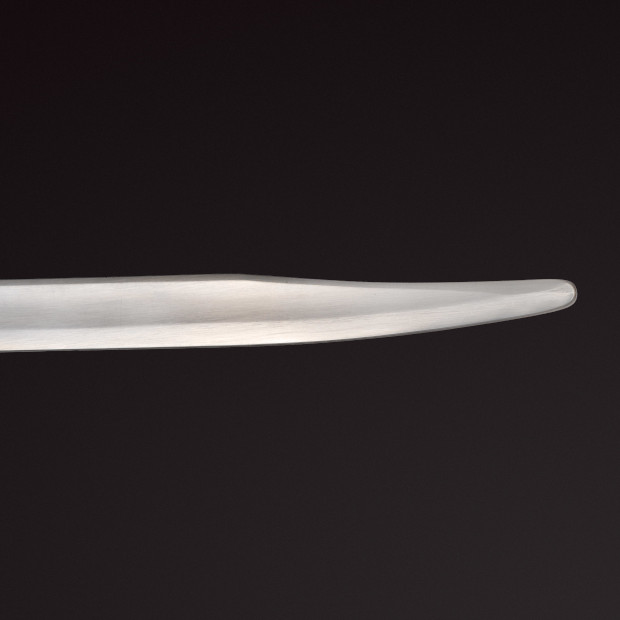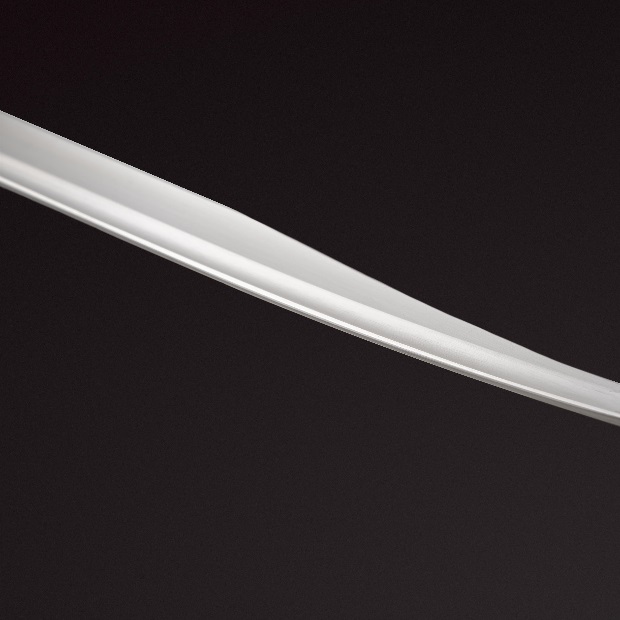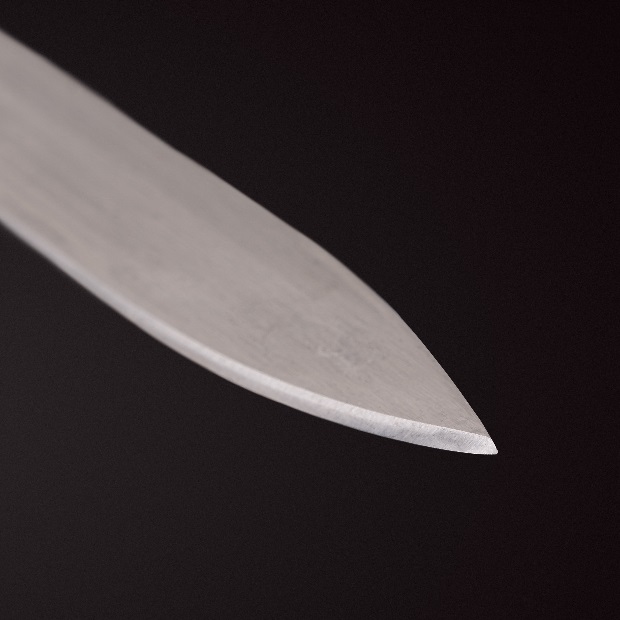|
Choosing blade type for your messer can be a bit confusing. Especially if you don't really know what to expect from certain types of blades or you don't really know for what, or how you will use it.
|
|
No wonder, that questions like "can I use your thick/thin blades for X or Y?" or "are thin blunt blades safe to use for sparring?" are popping up quite often in our mailbox.
We've collected the most common questions related to this topic and hope that it will help to clear up some things.
Both our thick and thin blades are blunt and therefore safe to use for sparring and drills. The specific type of recommended blunt blade however depends on a couple of other factors.
While sharp blades can be used for technical drills in some cases, we most definitely advise against this.
Thin blunt blades
|
|

For light sparring and technical drills, we recommend thin blunt blades. The thickness, cross-section, and "edge" profile are closer to sharp blades. This results in behavior almost identical to sharp blades. However, they are more prone to damage in case of repeated heavy edge on edge contact. Because of this, if your style includes more aggressive edge binds, thin blunt blades might be not the best option for you. If you are new in messer fencing or HEMA in general, thin blunts might be also not your best choice.
|
Thick blunt blades
|
|

Thick blunts are sturdy, yet flexible and lightweight enough to be used for heavy sparring, although the thicker cross-section and edge make them behave a bit different compared to originals. For heavy edge binds, competitive tournament use, or just to give some though love to your drill partner, these blades will be your best bet.
Thick blunt blades tolerate less frequent maintenance better. Still, some metal files and sandpaper can become good friends of yours if you want to use the messer as long as possible.
|
Sharp blades
|

Sharp blades are...well...sharp. Their intended use is mostly cutting practice, to be used as display or demonstration pieces. Under no circumstances do we recommend doing any kind of sparring with sharp blades since they can easily cause severe or even life-threatening injuries! For demonstrating proper cutting technique? They're great! To be a part of a reenacting set as showpieces, or to be shown around for educative purposes? Even better! One thing to keep in mind is that improper use may cause harm easily both to the blade and the user. While the former is definitely less concerning on the spot, regular and proper maintenance of the blade is a MUST in case of sharps. |